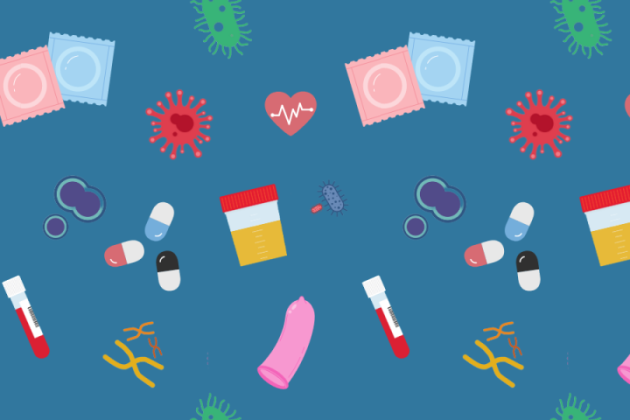
Info about what to do after STI testing, including wait times and treatment.
Waiting for Results
Recommendations for what to do while you wait for STI testing results depend on the type of test.
If you are waiting for results from lab testing, it is recommended that you don’t engage in any sexual activities due to the potential risk of transmitting an STI to a partner. If you can’t avoid engaging in sexual activities, you can consider using as many safer sex strategies as possible. These can include letting partners know about your STI status, using barrier methods, taking PrEP, or engaging in lower-risk sexual activities.
Getting Results
Results from lab testing are typically available within 2 weeks.
Some clinics operate on a “no news is good news” practice, which means they don’t contact you if your tests are negative. You can ask your healthcare provider if this is the case so you know what to expect.
If you don’t hear from your healthcare provider after 2 weeks, you can contact them directly to confirm your results.
Remember: Your health record is confidential between you and your healthcare provider. Your test results (positive or negative) aren’t accessible to partners, parents, family, or friends without your explicit consent.
Receiving a Negative Result
This means that testing didn’t detect the presence of an STI in your sample. If you’re still experiencing symptoms, you can check back in with a healthcare provider to identify the issue. Otherwise, there’s nothing else you need to do.
Receiving a Positive Result
This means that you have an STI. Treatment and follow-up will depend on what type of STI you have.
STI Treatment
Treating Curable STIs
Curable STIs are treated with antibiotics, skin creams, or oral medications. This includes gonorrhea, chlamydia, scabies, trichomoniasis, pubic lice, syphilis, and others.
Your healthcare provider will tell you how long treatment should last.
During treatment, it is recommended that you don’t engage in any sexual activities due to the potential risk of transmitting an STI to a partner. If you can’t avoid engaging in sexual activities, you can consider using as many safer sex strategies as possible. These can include letting partners know about your STI status, using barrier methods, taking PrEP, or engaging in lower-risk sexual activities
Treating Manageable STIs
Manageable STIs cannot be cured, but symptoms can be treated in ways that do not negatively impact your overall health or sex life. Symptoms for hepatitis B and C, herpes, HIV, and HPV can all be managed with medications if you are having outbreaks of herpes or genital warts (caused by HPV); those can be treated with medications, ointments, or liquid nitrogen.
There’s always a potential risk of transmitting a manageable STI to a partner, but that doesn’t mean you have to always avoid sexual activities. You can consider using as many safer sex strategies as possible, including using barrier methods, taking PrEP, engaging in lower-risk sexual activities, and most importantly, letting partners know about your STI status. The only times you might want to completely avoid sexual activities are during an outbreak (herpes, HPV) or if you are not on treatment for HIV.
Reportable STIs and Partner Notification
Public Health tracks rates of certain infections. For STIs, this means that positive test results are reported for:
- Chancroid
- Chlamydia
- Gonorrhea
- Hepatitis B or C
- HIV
- LGV
- Syphilis
This data is used to understand how infections are increasing or decreasing in different communities, including by gender, ethnicity, age, geography, and more.
Some clinics offer anonymous testing for HIV. You can learn more by checking their website or calling to ask.
Partner Notification
If you test positive for an STI, your healthcare provider may recommend that you contact your current and previous sexual partner(s) to encourage them to get tested. For information on legal requirements around telling partners if you're HIV-positive, check out CATIE (the Canadian AIDS Treatment Information Exchange).
If you don’t feel safe or comfortable contacting your current or previous partners, Public Health may be able to do it for you. This could involve:
- Being contacted by a public health worker who asks for the names and contact info of your current and past sexual partners.
- Your current and past sexual partners being contacted and told that they have been exposed to someone who has tested positive for an STI, and encouraged to get tested themselves.
- Your name will not be provided.
Support
Feelings About Getting a Positive Result
STIs are more common than you might think. Most people will get one in their lifetime and it doesn’t mean they are risky or irresponsible. A positive STI test isn’t a value-judgement about you, your character, your self-worth, or your personality. You might still feel some shame or embarrassment, though, because of the stigma surrounding STIs.
For some people, worrying about what others may think or feel about them can be the worst part of having an STI.
Asking for Help
If you want to talk to someone about your feelings around a positive test result, our Access Line can provide this support or help you find a sexual health clinic in your area.